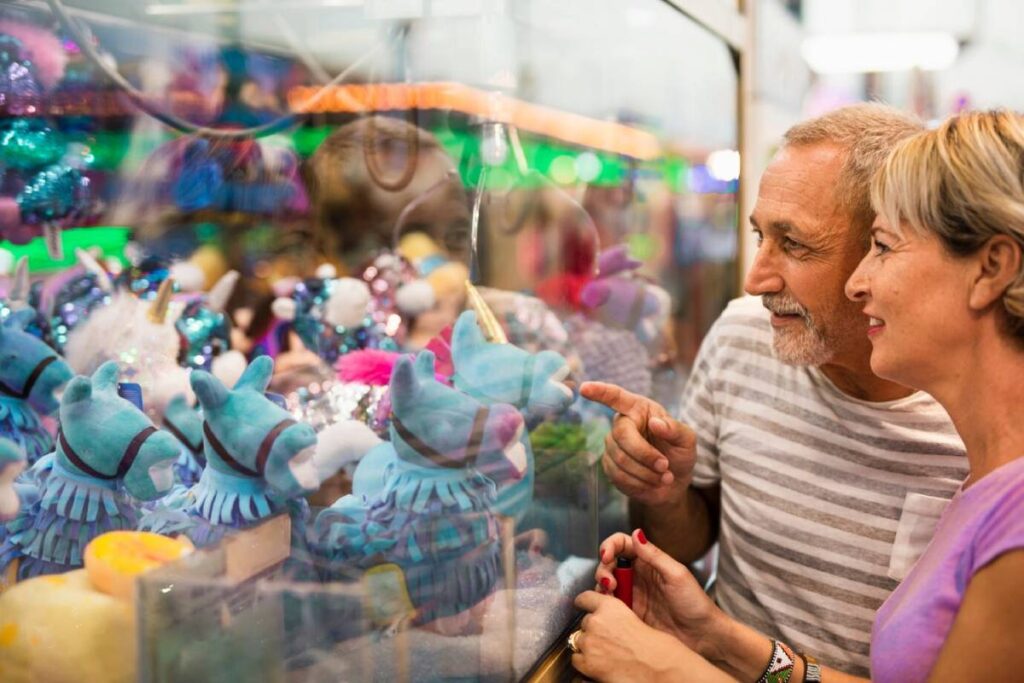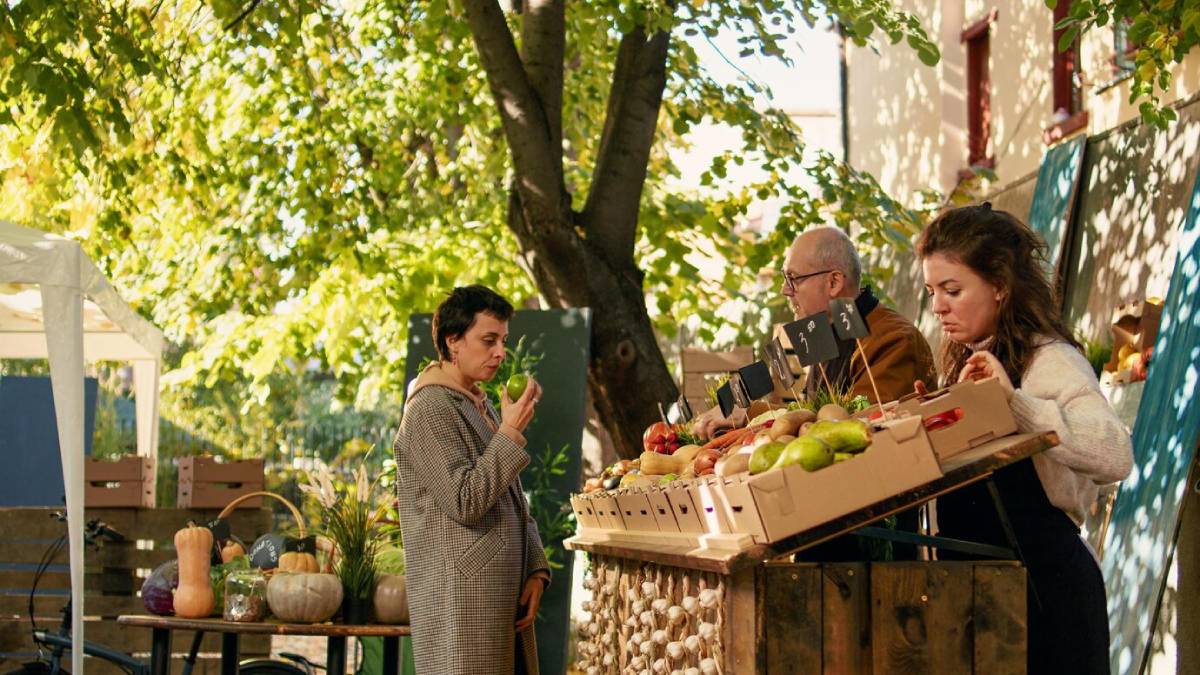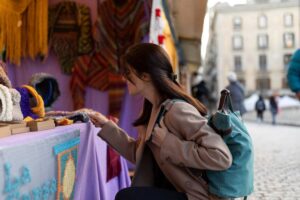Travel Blogs

Participating in Local Festivals Responsibly
Festivals are among the best parts of travel. They offer music, food, colour, and joy. More than that, they give insight into culture, tradition, and community.
But attending a local festival is not just about celebration. It’s also about responsibility.
Sustainable festival travel means enjoying events without harming people, places, or traditions. It means showing up with respect. Whether it’s a quiet village ritual or a large national parade, how you behave matters.
This guide helps you take part in festivals with care. You’ll learn to value cultures, support local people, and cut your environmental impact — all while having fun.
What Makes a Festival Special
Festivals celebrate culture, history, religion, or seasons. They can be loud or quiet, public or sacred. They often have deep roots and strong meaning for the people who host them.
Attending a festival means stepping into someone else’s story. It’s a gift to be part of it.
But with tourism on the rise, some festivals have changed. They may become crowded, commercial, or less authentic. That’s why your role as a responsible tourist matters.
What Is Sustainable Festival Travel?
Sustainable festival travel means joining events in a way that supports the environment, culture, and local community. It means thinking before acting and making choices that are kind and thoughtful.
This includes:
- Respecting local traditions and rules
- Reducing waste and pollution
- Supporting local businesses and artists
- Learning before taking photos or sharing stories
- Leaving nothing behind but kindness and thanks
Small steps lead to better experiences for everyone.
Before the Festival: Prepare With Care
1. Learn About the Festival
Each festival has its own meaning, purpose, and history. Learn about:
- Why the festival exists
- Who celebrates it
- What the main events or rituals are
- Any rules, customs, or dress codes
Read from trusted sources, local websites, or cultural centres. Knowing the background helps you understand what you’re witnessing.
2. Pack Responsibly
What you bring matters. Choose items that reduce waste and show respect.
Pack:
- A reusable water bottle
- A cloth bag or small backpack
- A reusable cup or container
- Comfortable, modest clothes based on local dress
- A scarf or shawl for covering shoulders if needed
Avoid plastic, throwaway items, or costumes that imitate local dress.
3. Book Ethical Stays and Tours
Stay in places owned by locals. Choose guides who know and respect the culture. Ask questions before booking.
Good signs include:

- Locally owned accommodations
- Small group tours
- Eco-certified businesses
- Community-led experiences
Your money can support the right people.
During the Festival: Be Present and Polite
4. Follow Local Customs
Every place has its own way of celebrating. Some are loud and free. Others are quiet and spiritual.
Watch what locals do and follow their lead.
Tips include:
- Stand or sit where others do
- Join parades only if invited
- Stay silent during rituals
- Remove shoes when entering sacred spaces
- Use polite gestures
If unsure, ask a local or guide.
5. Dress Thoughtfully
Dress shows respect. What works in one country may not in another.
Follow these tips:
- Cover shoulders and knees if the culture is conservative
- Wear simple clothes, not flashy ones
- Avoid wearing traditional outfits unless invited
- Don’t dress in a way that mimics or mocks local style
Good clothing choices show you care.
6. Ask Before Taking Photos
Photos help remember the moment, but not every moment is yours to keep.
Follow this guide:
- Always ask before taking pictures of people
- Never photograph children without permission
- Avoid photos during prayer, ceremonies, or emotional moments
- Don’t use flash if it’s distracting
- Respect “no photography” signs
Focus on experience, not just the perfect shot.
Supporting the Local Community
7. Spend Your Money Wisely

Where you spend money shapes the local economy. Choose to support people who keep the festival alive.
Buy from:
- Street vendors selling local food
- Artists and craftspeople
- Performers offering music or dance
- Small shops or cooperatives
Skip big chain restaurants or imported souvenirs.
8. Respect Performers and Workers
Many festivals involve dancers, musicians, cooks, and organisers. These people work hard to share their culture.
Respect them by:
- Watching shows quietly
- Not touching performers
- Tipping fairly when it’s allowed
- Saying thank you or learning a local greeting
Kindness goes a long way.
Caring for the Environment
9. Leave No Waste Behind
Festivals can create large amounts of rubbish. You can help reduce this by:
- Using your own container for food or drink
- Carrying a cloth to sit on instead of using disposable mats
- Refusing plastic bags, straws, or wrappers
- Taking all your rubbish with you if no bins are available
Look for compost and recycling bins. If they’re missing, do your best to sort your own waste later.
10. Travel Light and Clean
Choose low-impact ways to get to and from the event.
Ideas include:
- Taking public transport
- Carpooling with others
- Walking or cycling if possible
- Staying near the festival to reduce driving
Avoid single-use travel items like plastic ponchos or raincoats. Choose reusable ones.
After the Festival: Reflect and Share Responsibly
11. Share With Respect
It’s natural to want to post about your trip. But be careful with what and how you share.
Ask yourself:
- Does this photo show people with dignity?
- Did I get permission to post it?
- Am I telling the full story, not just the exotic parts?
- Am I giving credit to local people?
Share what you learned, not just what you saw.
12. Give Back If You Can
Think about ways to thank the community. This could be:
- Leaving a kind review for a local business
- Donating to a cultural preservation project
- Supporting a festival organisation year-round
- Encouraging others to travel with respect
Even small acts of giving can make a big impact.
Real-World Examples of Responsible Festival Travel
Holi in India
Holi is a joyful spring festival with colour and dance. It has deep Hindu roots. Visitors should dress modestly and in natural colours. They should also join respectfully, but only in areas where guests are welcome.
Inti Raymi in Peru
This festival honours the Incan sun god. It includes parades and ceremonies. Choosing community-led tours and respecting sacred rituals makes the experience meaningful and respectful.
Gnaoua Festival in Morocco
A music festival that celebrates African spiritual and cultural heritage. To respect performers, learn about Gnaoua history, and keep noise down. This way, we help preserve the event’s spirit.
Mistakes to Avoid
Avoid these common issues:
- Wearing sacred symbols as fashion
- Taking selfies during serious rituals
- Entering restricted areas
- Drinking or acting loudly in spiritual spaces
- Throwing rubbish in public areas
If you’re unsure, stay quiet, observe, or ask.
Festivals Can Be Joyful and Respectful
Local festivals are a gift. They offer music, meaning, and memory. But they are not just for tourists — they belong to the people who create them.
Eco-friendly cultural events and sustainable festival travel protect this special balance. Plan ahead, act carefully, and support the right people. This way, your visit adds to the celebration instead of causing issues.
Travelling with respect builds better memories and better futures.









